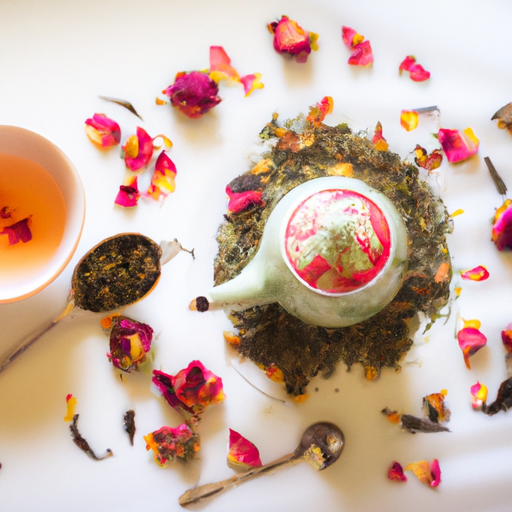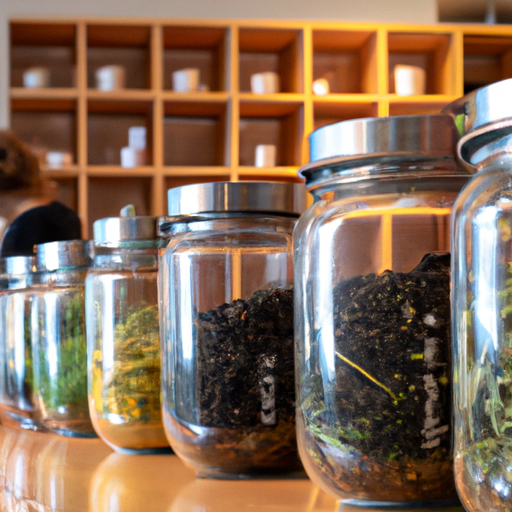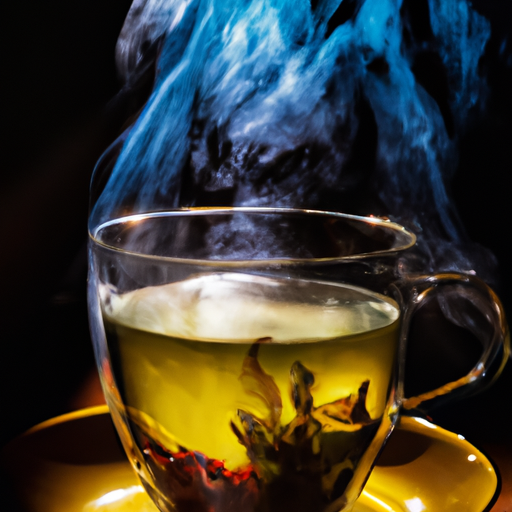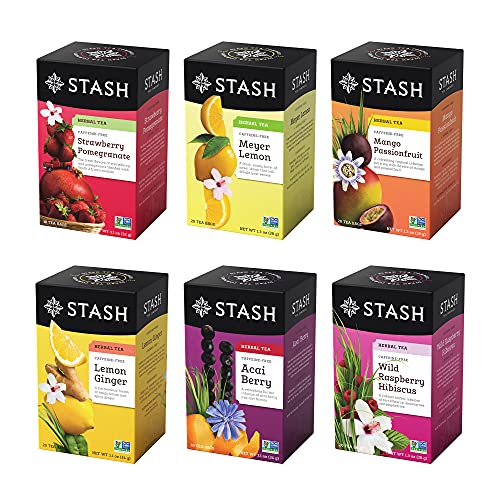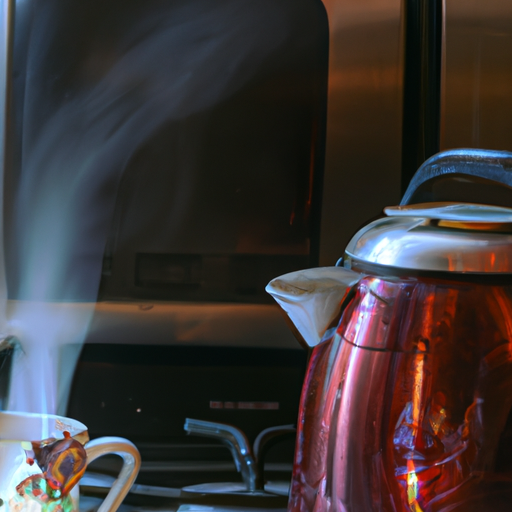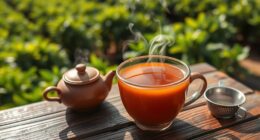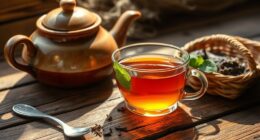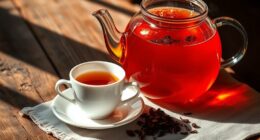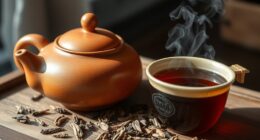There’s nothing quite like a cup of herbal tea to soothe the soul and rejuvenate the senses. As they say, a cup of tea is like a hug in a mug. And when it comes to brewing herbal tea, Rose Mountain Herbs is my go-to choice. With their exquisite blends and commitment to quality, they have perfected the art of creating teas that are both flavorful and beneficial for the body.
In this article, I will guide you through the steps of brewing your own herbal tea using Rose Mountain Herbs. From choosing the perfect blend to steeping it just right, I will share my knowledge and expertise to ensure you have the most enjoyable tea-drinking experience possible.
So grab your favorite mug, gather your supplies, and let’s embark on a journey of aromatic delights, one sip at a time.
Key Takeaways
- Steep herbal tea to perfection by following the recommended brewing instructions from Rose Mountain Herbs.
- Remove the infuser after steeping to prevent bitterness and achieve a balanced infusion.
- Experiment with different sweeteners like honey, stevia, maple syrup, or agave nectar to enhance the taste and potentially gain health benefits.
- Enhance the flavor of herbal tea by adding citrus juice, ginger, or other herbs, and explore combinations like lemon-lavender or cinnamon-ginger for a spicy twist.
Choose Your Herbal Tea Blend
Now it’s time to choose your own herbal tea blend and embark on a delightful journey of flavors! Choosing the perfect herbal tea blend can be a daunting task, especially for beginners. But fear not, because I’m here to guide you through the process.
When selecting the right herbs for your homemade herbal tea blend, there are a few things to consider. First, think about your taste preferences. Do you enjoy floral flavors or do you prefer something more earthy?
Next, consider the health benefits you’re looking for. Are you aiming for relaxation or an energy boost?
Lastly, think about the purpose of your tea. Are you creating a blend to help with digestion or to promote better sleep?
By keeping these factors in mind, you’ll be able to choose the perfect herbal tea blend that suits your needs and desires.
Gather Your Supplies
First things first, make sure you have all the necessary tools ready to create your own botanical infusion. Here are the essential supplies you’ll need:
-
A teapot or teacup: Choose a vessel that allows the herbs to infuse properly and is large enough to hold the desired amount of tea.
-
High-quality herbs: Using fresh, organic herbs is crucial for a flavorful and aromatic herbal tea. Rose Mountain Herbs offers a wide variety of premium herbs to choose from.
-
A tea strainer or infuser: This will help separate the herbs from the liquid when pouring the tea into your cup.
When it comes to brewing herbal tea, it’s important to follow proper tea brewing techniques. Steep the herbs in hot water for the recommended amount of time to extract the full flavor and medicinal properties. By using high-quality herbs, you can ensure a delicious and beneficial cup of herbal tea.
Measure Your Tea
Choose a vessel that allows the herbs to infuse properly and is large enough to hold the desired amount of tea, making sure to measure your tea accurately for the perfect infusion.
When choosing the right tea blend, it’s important to consider the flavors and benefits you’re looking for. Rose Mountain Herbs offers a wide variety of herbal tea blends, each with its own unique taste and properties. Whether you prefer a calming chamomile blend or an invigorating peppermint mix, there’s a tea for every preference.
When measuring loose herbal tea, it’s crucial to be precise. Use a kitchen scale or measuring spoon to ensure you’re adding the correct amount. For a standard cup of tea, a teaspoon of loose tea is usually sufficient. However, for a stronger brew, you may want to add a little more.
Remember, accurate measurements lead to a better infusion and a more enjoyable cup of herbal tea.
Boil the Water
To get started, you’ll want to heat your water to the perfect temperature for a delicious cup of tea. Did you know that the ideal water temperature for most herbal teas is around 205°F (96°C)? Achieving the perfect water temperature is essential to extract the maximum flavor and benefits from the herbs.
Here are some tips to help you achieve the perfect water temperature:
-
Use a kettle: Using a kettle is the easiest and most convenient way to boil water. It allows for precise temperature control, ensuring your water reaches the desired temperature.
-
Avoid boiling water for too long: Boiling water for too long can cause it to lose oxygen content, resulting in a flat-tasting tea. It’s best to bring the water to a rolling boil and then remove it from the heat source.
-
Use a thermometer: Using a thermometer is a foolproof way to ensure your water is at the perfect temperature. Simply dip the thermometer into the water to check the temperature before adding the herbs.
-
Let the water cool slightly: After boiling the water, let it cool for a minute or two. This will help bring the temperature down to the ideal range for herbal teas.
By following these tips and using a kettle, you can ensure that your water is at the perfect temperature to brew a flavorful and aromatic cup of herbal tea.
Steep Your Tea
To steep your tea, start by placing the tea in the infuser, which can be a mesh ball or a tea bag. Make sure to choose a high-quality infuser that allows the tea leaves to expand and release their flavors.
Next, pour the hot water over the tea, ensuring that the water’s temperature is correct for the specific type of tea you’re brewing.
Finally, set a timer for the recommended steeping time, which can vary depending on the type of tea. This will allow the tea to infuse properly and result in a delicious and aromatic cup of herbal tea.
Place the Tea in the Infuser
Gently place the loose herbal tea in the infuser, allowing the fragrant petals to fill the air.
When it comes to choosing an infuser, there are a few different types available. The most common ones are ball infusers, basket infusers, and disposable tea bags. Ball infusers are convenient and easy to use, while basket infusers provide more space for the tea leaves to expand and infuse. Disposable tea bags are great for on-the-go brewing.
Whichever type you choose, it’s important to keep your infuser clean to ensure the best flavor in your tea. After each use, rinse the infuser under warm water and gently scrub away any residue. For a deeper clean, soak the infuser in a mixture of warm water and mild dish soap. Remember to thoroughly dry the infuser before storing it to prevent any mold or bacteria growth.
Pour the Hot Water Over the Tea
After placing the tea in the infuser, how does the hot water bring out the rich flavors and aromas of the steeping beverage? The temperature of the hot water plays a crucial role in extracting the full essence of the herbal tea.
Different herbal teas require different water temperatures to achieve the perfect brew. For example, delicate herbal teas like chamomile and lavender should be steeped in water that’s around 175°F (80°C), while robust herbal teas like peppermint and ginger can withstand higher temperatures of around 212°F (100°C).
Additionally, the brewing method also affects the flavor profile of the tea. Steeping the tea for a shorter duration will result in a milder taste, while a longer steeping time will intensify the flavors and create a bolder cup of tea.
By carefully selecting the appropriate water temperature and brewing method, you can ensure a delightful and aromatic herbal tea experience.
Set a Timer for the Recommended Steeping Time
Don’t forget to set a timer for the recommended steeping time to ensure the perfect infusion of flavors and aromas in your cup of tea! Using a tea timer has several benefits when it comes to steeping herbal tea. Firstly, it allows you to achieve consistent results every time by ensuring that you don’t oversteep or understeep your tea.
Secondly, it helps you extract the maximum health benefits from the herbs, as different blends require different steeping times to release their beneficial compounds. To choose the perfect steeping time for your herbal tea, consider the following factors: the type of herb used, the desired strength of the tea, and your personal preference.
Experimentation is key, but as a general rule, delicate flowers and leaves need less time, while roots and barks require longer steeping. So, set that timer and let it guide you to a perfectly brewed cup of herbal tea!
Enjoy Your Tea
Now that you’ve steeped your tea to perfection, it’s time to enjoy the fruits of your labor.
The first step is to remove the infuser from your cup or teapot, ensuring that no stray leaves make their way into your drink.
Next, if you prefer your tea on the sweeter side, you can add a sweetener such as honey or sugar. You can also enhance the flavor by adding a splash of citrus juice or a sprinkle of herbs.
Remember, the choice is yours, so feel free to experiment and find your perfect cup of herbal tea.
Remove the Infuser
Gently twist and pull out the infuser, revealing the beautifully steeped herbal tea. Ah, the moment of anticipation is finally here! Removing the infuser not only allows you to fully appreciate the vibrant colors and enticing aromas of your tea, but it also brings a sense of completion to the brewing process.
Here are a few discussion ideas to consider:
-
Infuser alternatives: If you don’t have an infuser, no worries! You can use a tea ball, a reusable cloth bag, or even a simple strainer to achieve the same result.
-
Benefits of removing the infuser while steeping herbal tea: By removing the infuser, you prevent oversteeping, which can lead to a bitter taste. It also allows the tea leaves to fully expand, releasing their flavors and ensuring a more balanced infusion.
So, take a moment to appreciate the beauty of your brewed tea, and savor each sip as you remove the infuser. Cheers to a delightful tea experience!
Add Sweeteners or Enhancements, If Desired
Enhance your tea experience by adding sweeteners or other flavorful enhancements to your cup of deliciousness! While herbal tea can be enjoyed on its own, adding sweeteners or enhancements can elevate the taste and provide additional health benefits.
Sweeteners like honey or stevia can add a touch of sweetness without the calories of sugar. They also offer natural antibacterial and antioxidant properties. For those looking to explore different options, maple syrup or agave nectar can provide a unique flavor profile.
Enhancements such as lemon or ginger can add a refreshing and invigorating twist to your herbal tea. These ingredients are known for their immune-boosting properties and can help soothe a sore throat or aid digestion.
Experiment with different combinations to find your perfect cup of herbal tea.
Experiment with Variations
Try adding a twist to your herbal tea by experimenting with different variations, like adding a slice of fresh lemon for a burst of citrusy flavor that’ll transport you to a sunny orchard.
Experimenting with different flavors and trying unique tea combinations can elevate your tea-drinking experience.
For a floral twist, add a few lavender buds or rose petals to your herbal tea blend. This’ll infuse your tea with a delicate and soothing aroma.
If you prefer a more spicy flavor, try adding a pinch of cinnamon or ginger to your tea. These warming spices’ll give your tea a comforting and invigorating kick.
Another option is to mix different types of herbal teas together to create your own custom blend. For example, combining chamomile and peppermint can result in a calming and refreshing tea.
Don’t be afraid to get creative and experiment with different variations – you may discover a new favorite tea combination!
Share Your Experience
Share your experience of experimenting with different flavors and combinations to create your own unique and delightful tea blends. It’s amazing how a simple tweak in the ingredients can completely transform the taste and aroma of your herbal tea.
Here are three tips that can help you in your journey of tea experimentation:
-
Don’t be afraid to mix and match: Combining different herbs, flowers, and fruits can lead to unexpected and delightful flavor combinations. For example, adding dried lavender to your chamomile tea can create a soothing and aromatic blend.
-
Consider the benefits: Each herb in your tea blend can offer various health benefits. Do some research and incorporate herbs that can help with relaxation, digestion, or immune support.
-
Ask for recommendations: Don’t hesitate to seek advice from other tea enthusiasts or herbalists. They might have tried combinations that you haven’t thought of yet.
So, go ahead and let your creativity flow. Share your tips and ask for recommendations to take your herbal tea brewing to the next level.
Frequently Asked Questions
Is it safe to consume herbal tea during pregnancy?
During pregnancy, consuming herbal tea can provide numerous benefits such as reducing morning sickness, promoting relaxation, and boosting the immune system. However, there are potential risks associated with certain herbs, so it’s important to consult with a healthcare professional before consuming herbal tea.
Can I mix different herbal tea blends together?
Mixing flavors and experimenting with combinations is a fun way to create unique herbal tea blends. Did you know that over 70% of tea drinkers enjoy blending different flavors together?
How long can I store the herbal tea for?
Herbal tea can be stored for up to 12 months if properly stored in a cool, dark place. The shelf life of herbal tea may vary depending on the type of herbs used and their quality.
Can I sweeten my herbal tea with honey or sugar?
You can sweeten herbal tea with honey or sugar, but honey adds a touch of natural sweetness and extra health benefits. It’s like adding a golden drop of nature’s goodness to your cup.
Can I drink herbal tea if I have certain medical conditions or take medication?
Yes, it is generally safe to drink herbal tea if you have high blood pressure or diabetes. However, it is important to consult with your doctor to ensure it won’t interfere with your medication or worsen your condition.
Conclusion
In conclusion, brewing herbal tea with Rose Mountain Herbs is a delightful and soothing experience. You can find the perfect cup to suit your mood with a wide selection of blends to choose from, such as their calming chamomile or refreshing peppermint. By following the simple steps outlined above, you can easily brew a delicious cup of herbal tea that’ll transport you to a state of tranquility, like a gentle breeze on a warm summer day.
So why not indulge in this aromatic journey and savor the natural goodness that Rose Mountain Herbs has to offer?

